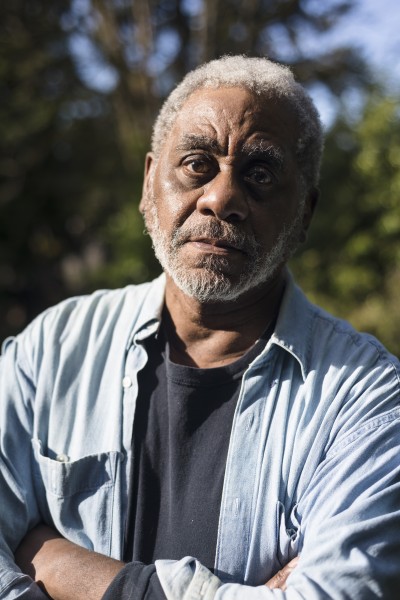“The New Middle Passage: Mindfulness and Black America” 7:30 pm Feb. 13
Charles Johnson, celebrated author, short storyteller, cartoonist, professor, and one of a group of writers who raised African American literature to international prominence, will deliver the Swope Lecture at University of Puget Sound.
Johnson, winner of the 1990 National Book Award for Middle Passage (1990)—a retelling of the slave narrative that deeply impacted modern audiences—has accrued a long list of accolades over his five decades of work. Among them: the MacArthur “genius” award and an American Academy of Arts and Letters Award in Literature.
His talk, “The New Middle Passage: Mindfulness and Black America,” will take place at 7:30 p.m. on Tuesday, Feb. 13, in Schneebeck Concert Hall on campus, near the corner of Union Avenue and N. 14th Street. The event is free, but tickets must be obtained in advance. See below for details.


Photo courtesy University of Puget Sound
Johnson’s wide swathe of work has extended to some unusual horizons and audiences. His writing of four novels, including Dreamer (1998) and Oxherding Tale (1982); and three short story collections—most recently, Dr. King’s Refrigerator and Other Bedtime Stories (2005)—has been interspersed with two young adult books; a work of aesthetics; two collections of comic art; and numerous book reviews and critical articles. He co-authored King: The Photobiography of Martin Luther King Jr.; and Africans in America: America’s Journey Through Slavery, the companion book for the PBS television series. He also wrote more than 20 screenplays.
For comic art lovers, Johnson has published more than 1,000 drawings. For followers of Eastern religion, the student of Buddhism and Sanskrit has written Buddhist stories and reflections. For aspiring writers, he has turned out books including The Way of the Writer: Reflections on the Art and Craft of Storytelling (2015). He also taught creative writing for 35 years at University of Washington, where he is professor emeritus.
In a 2010 interview, the Illinois-born author told Fiction Writers Review that he sometimes wrote throughout the night, heading out to give a lecture the next morning, and that he had not had a vacation in his entire career. Instead he practices meditation and works out in the gym, including sets of kung-fu, to relieve the pressure of work, family, writing, lectures, and other obligations.
“In order to serve the art, which will become a gift to others (and the culture) perhaps for generations, an artist often has to just step away from the quotidian demands of public life and the social world,” he told the magazine.
Johnson began his career as a political cartoonist and illustrator in the 1960s and published his first novel, Faith and the Good Thing, in 1974. He earned a doctoral degree in philosophy from SUNY-Stony Brook University in 1988. Over the following two decades, his work attracted international attention, drawing hundreds of requests for interviews and lectures—and the honor of a postage stamp carrying his portrait, issued by the Inter-Governmental Philatelic Corporation as part of a series on influential black authors.
In 2003 the American Literature Association set up the Charles Johnson Society, devoted to the many scholarly papers and articles on his work and the genre of philosophical fiction. A year later he was awarded the Stephen E. Henderson Award for outstanding literary contributions by the African American Literature and Cultural Society.
In the 2010 Fiction Writers Review interview, Johnson expressed the belief that racism will never end. “Racism is based on our belief in a division between “self” and “other,” and our tendency to measure ourselves against others … and to judge them as better or worse than ourselves,” he said. “Sad to say, it is also based on fear. This constant measuring of ourselves in a social context is something human being will always do until they experience—as a Buddhist would say—awakening, which frees us from judging others or ourselves.”
The Jane Hammer Swope Lectureship on Ethics, Religion, Faith, and Values aims to promote discussion, critical thinking, and ethical inquiry about matters of religion, including its role in public life and contemporary ethics. The lectureship was established at Puget Sound through a gift from Maj. Ianthe Swope in honor of her mother, Jane Hammer Swope.
FOR TICKETS: Admission is free, but tickets are required. Tickets are available online at tickets.pugetsound.edu, or at Wheelock Information Center, 253.879.3100.
For directions and a map of the University of Puget Sound campus: pugetsound.edu/directions.
– University of Puget Sound








